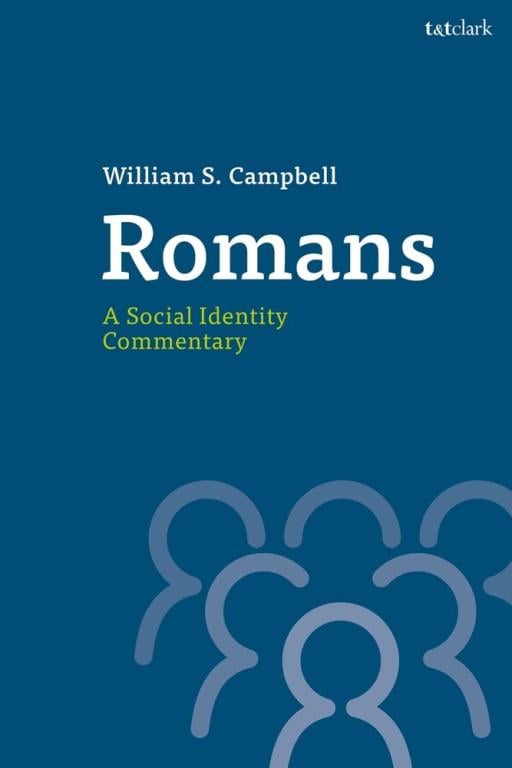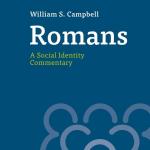One of the big problems for the Paul within Judaism folks is, no matter how hard Nanos and Fredriksen and others try, they cannot squeeze Galatians into their paradigm for Paul. Paul argues that the Mosaic covenant was pro tempore until the time had fully come for the Messiah to be born of woman. Here’s what Gal. 4 actually says: “But when the set time had fully come, God sent his Son, born of a woman, born under the law, 5 to redeem those under the law, that we might receive adoption to sonship. 6 Because you are his sons, God sent the Spirit of his Son into our hearts, the Spirit who calls out, “Abba,[c] Father.” 7 So you are no longer a slave, but God’s child; and since you are his child, God has made you also an heir.” Notice Paul includes himself as receiving the adoption to sonship as well as the audience. Paul draws an analogy between the Mosaic Law and a paidagogos, a slave child-mnder needed before someone comes of age. He goes on to link the Abrahamic covenant with the new covenant, while putting the Mosaic covenant and the present Jerusalem. in the same category as Hagar! This is because Paul has a theology of multiple covenants, and the new covenant is not linked to or simply a renewal of the Mosaic one, it is linked to the Abrahamic one. All of this is due to Paul’s eschatological perspective as to the significance of the Christ event, and where the story is headed.
It is also a very odd thing for a Jew to say in 1 Cor. 9 he sometimes ‘becomes the Jew to the Jew’ if in fact he was never operating otherwise. Alan Segal was right— Paul was viewed as an apostate Jew when it came to the keeping Mosaic law etc. This is why he suffered whippings and stonings.
On a different subject, commenting on God’s impartiality which Paul mentions in Rom. 2, Campbell says (p. 96) that this refers to God’s judgment being anti-discriminatory, not anti-ethnic. I quite agree with this point, but this does not mean that Paul doesn’t think both Jews and Gentiles need to be redeemed by Christ, which involves some change, not in ethnicity, but in terms of how they view the people of God and who is involved and how. For instance, I found Campbell’s argument that what is being opposed is only adult circumcision in Rom. 2, in particular for Gentiles. This makes little or no sense of what Paul is arguing against with his fellow Jewish Christians in Galatia, who want to circumcise Gentiles, regardless of age so they can become full-fledged Jews. Clearly Paul views circumcision as the sign of the Mosaic covenant just as baptism is the sign of the new covenant inaugurated by Christ (see Rom. 6). Put another way, circumcision is an entrance ritual which as originally practiced had nothing to do with repentance or consent since it was largely practiced on the 8th day. Paul says that a Gentile who gets themselves circumcised is thereby obligated to keep the whole 613 commandments of Moses. To correctly interpret what Paul says in Rom. 2 one needs to take account of what he is arguing against in Galatians. What is at stake, and Paul makes this clear in Gal. 4 is covenantal theology, with the Mosaic covenant viewed as the childminder until Christ came and fulfilled that covenant’s demands. Paul connects the Abrahamic covenant to the new one, and distinguishes both from the Mosaic covenant which he does not think either Jews or Gentiles who are Christ followers have to keep any longer. I think Paul would point out that ‘Abraham our forefather according to the flesh’ was certainly not circumcised on the 8th day, not being under the Mosaic covenant, and that the Abrahamic covenant is the one connected by Paul to the new covenant. The new covenant is definitely not a renewal of the Mosaic one, which Christ fulfilled. Paul’s thinking is eschatological and grounded in both the Christ event and his reading of Jerm. 31, very similar to the way it is read in Hebrews. And Abraham is the perfect person to connect to the new covenant of both Jew and Gentile united in Christ because he was both once a pagan, and then the forefather of God’s chosen people as well when he trusted God and it was credited as righteousness (which by the way has nothing to do with imputed righteousness, an idea imported into Paul’s theology by Augustinian thinking amplified in the German and Calvinistic Reformations). No, it’s Abraham’s own trust which is credited as Abraham’s right standing with God, and a proper reading of Romans 5 doesn’t suggest otherwise. (see my Romans commentary).













